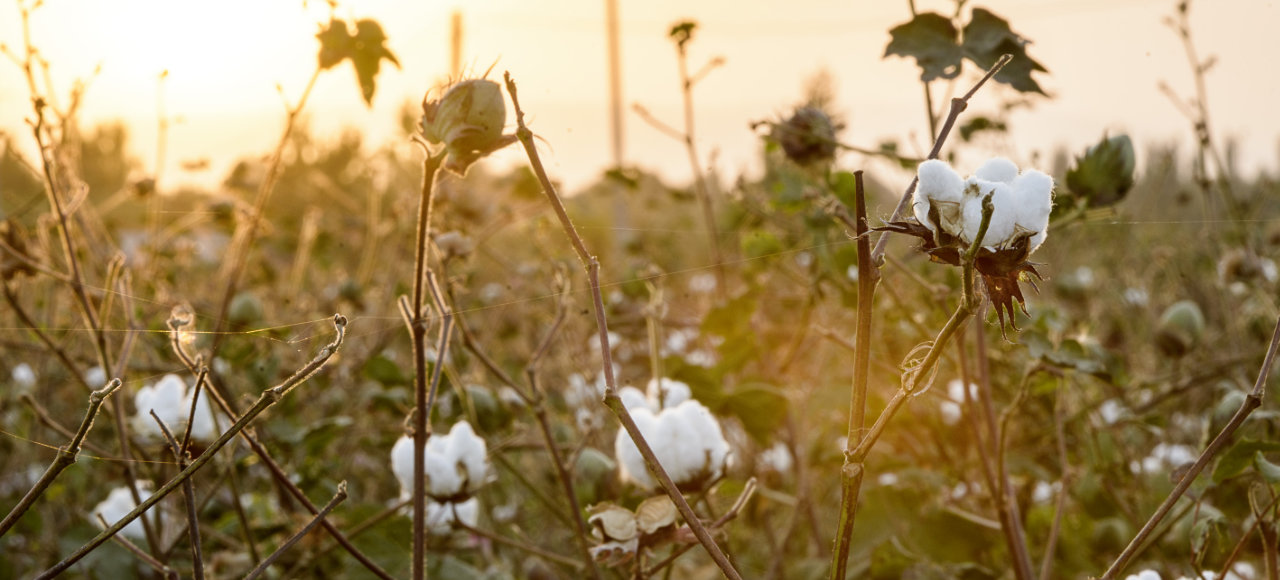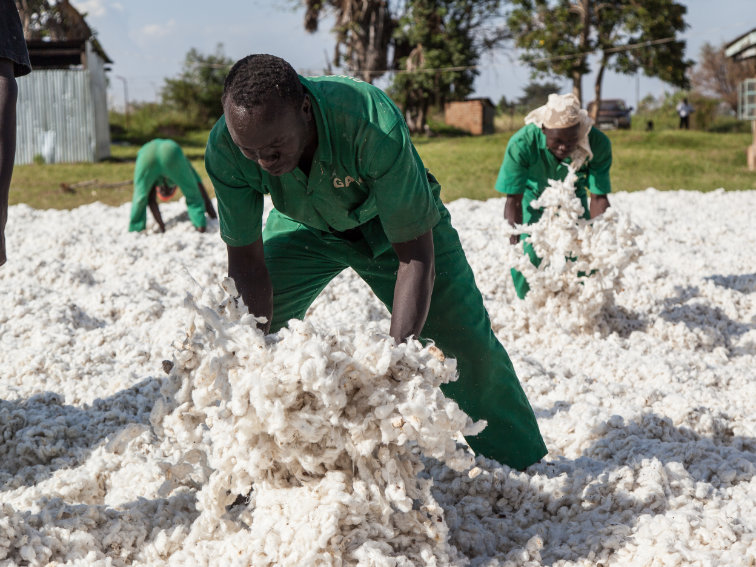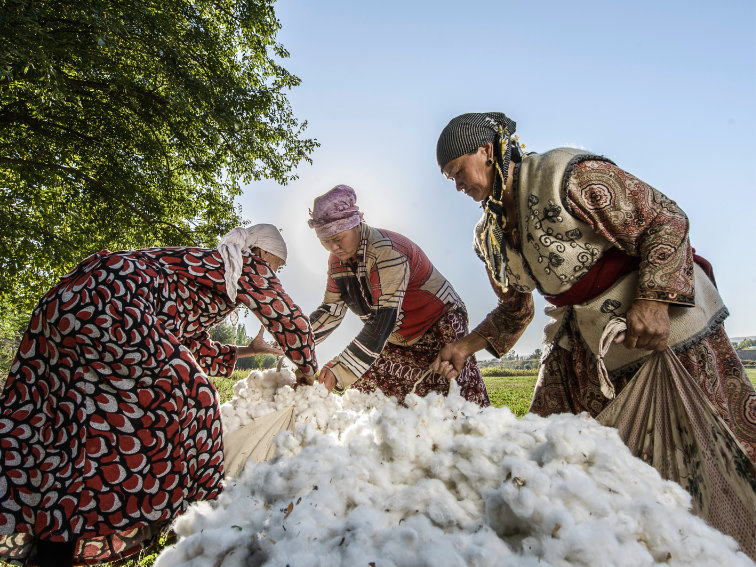
Cotonea Organic Cotton
Find out more about the natural fibre organic cotton from our Fair Trade cultivation projects.
Organic Cotton Cultivation Projects
Find out more about the natural fibre organic cotton from our Fair Trade cultivation projects.
Organic Cotton Cultivation ProjectsAlthough originally perennial, the cotton plant was cultivated into an annual plant for reasons of profitability. When their capsules burst open after ripening, - depending on the type, climate, weather and soil conditions - bright white, cream coloured, or grey fibres unfold into fluffy balls. Originally cotton was only cultivated in the tropics and subtropics where there is sufficient rainfall all year round. However, meeting rising demands, cotton cultivation expanded into dryer habitats – where large-scale irrigation is necessary.
Cotton requires large amounts of water only at the begin of its growth season. Later it is resistant to drought, undemanding and modest. It has outstanding properties, which in this combination is unusual and benefits us humans greatly. It should be no surprise then that cotton has made its victorious way around the world, and that our fascination for this natural raw material stems from these properties.
It can absorb up to 65 percent of its own weight in moisture, it is skin-friendly and breathable, has a very low allergic potential, is durable and tear-resistant. Neither hot water nor lye can damage it, it is easy to clean and long-lasting even when used heavily and often. Appropriate treatment produces a wonderfully subtle, silky smooth fabric out of cotton.
Cotton is a jack of all trades, with results which to date you cannot produce synthetically. It is the most widespread fibre in the world, as it fulfils the highest demands of comfort, hygiene and durability. In addition, cotton is completely biodegradable.
Organic cotton is the only option for Cotonea products! This is why we cultivate our own organic cotton in Uganda and Central Asia in regions with sufficient rainfall. We do not use genetically engineered seeds, artificial fertilisers or pesticides. Our local partners know many natural methods to keep large insect infestations “in check”. An independent certification company controls the adherence to ecological standards.
The cultivation of organic cotton stands for organic crop protection and natural fertilisers, and not for the use of harmful pesticides and artificial fertilisers. As no pure mono cultures are grown in organic farming, the soil is conserved and therefore protected from leaching. Due to crop rotation with other seeds, the soil’s precious fertility is guaranteed and even improved. Typical rotation crops for cotton plants include sesame and sunflowers, as well as pulses, chilli, manioc, yellow carrots and many more.
A great emphasis is put on sustainability in organic crop cultivation. Therefore, our earth’s valuable resources, for example water, are used sensibly. The areas of Cotonea’s cultivation projects have sufficient rain and groundwater at their disposal. The organic cotton plants are provided with sufficient water and artificial irrigation is not necessary. Contrary to conventional cultivation, Cotonea organic cotton is not produced using gene manipulated species. As a mark of respect to nature, only natural seeds are used. In doing so, many organic farmers have a higher yield per hectare than conventional farmers.
We encountered both projects through personal contacts and after long periods of research. With both projects we have partners who believe in the future of ecological agriculture. These people are indispensable for the success and the credibility of a project, for they convince farmers about the benefits of ecological and the disadvantages of conventional agriculture. And they clarify the risks of genetically modified seeds.
Consistent information, systematic, continual training as well as calculable income convince farmers, that it is worth “being a part of the projects”. With the GADC und the initiator, Bruce Robertson, who continues to develop the project with great personal involvement, we have reliable partners in Uganda.
People want to build long-lasting, trusting relationships. They are the basis for stability. They contribute that a region and the people who live there can develop. Stability is the basis of a good life in safety.

Our Ugandan organic cotton is a dream: Silky and firm, the fibres are very long, non-slippery and wonderfully soft.
Find out more
Our Kyrgyz organic cotton is brilliantly white, the fibres are strong and tear-resistant.
Find out more